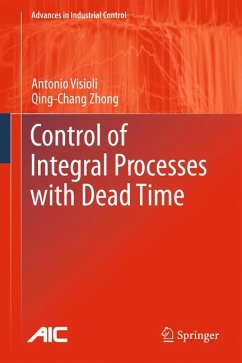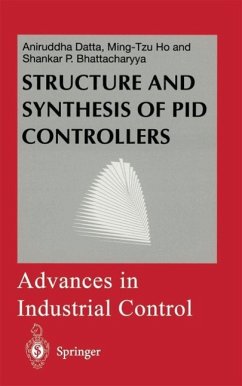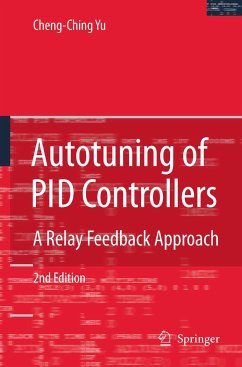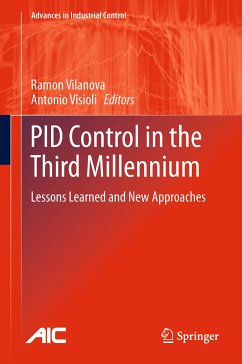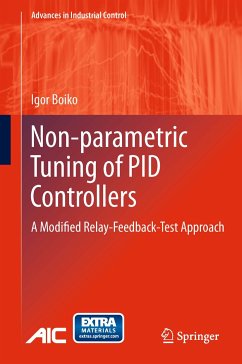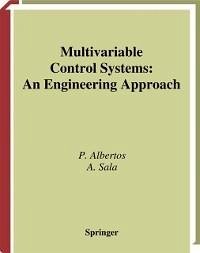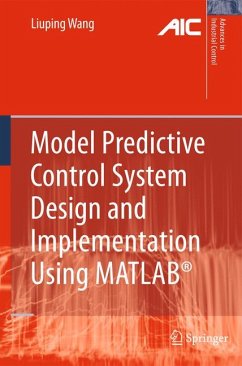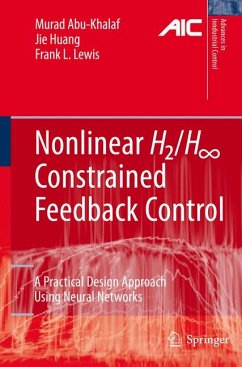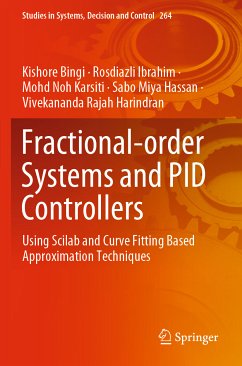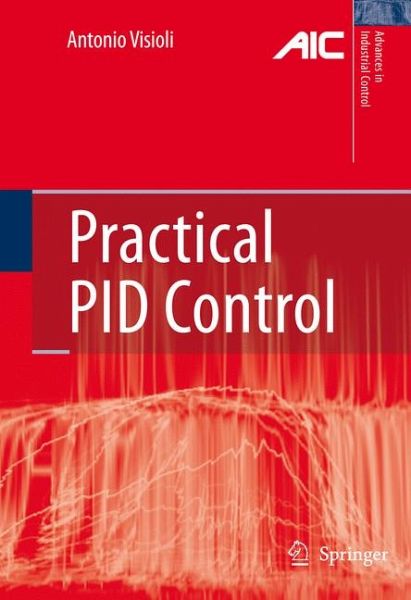
Practical PID Control (eBook, PDF)
Versandkostenfrei!
Sofort per Download lieferbar
112,95 €
inkl. MwSt.
Weitere Ausgaben:

PAYBACK Punkte
56 °P sammeln!
Proportional-integral-derivative (PID) controllers are the most adopted controllers in industrial settings. The availability of microprocessors and software tools and increasing demand for higher product quality at reduced cost have stimulated research to devise new methodologies to improve their performance and ease of use."Practical PID Control" focuses on those functionalities that can provide significant improvements in PID performance in combination with parameter tuning. In particular, the choice of filter to make the controller proper, the use of a feedforward action and the selection o...
Proportional-integral-derivative (PID) controllers are the most adopted controllers in industrial settings. The availability of microprocessors and software tools and increasing demand for higher product quality at reduced cost have stimulated research to devise new methodologies to improve their performance and ease of use.
"Practical PID Control" focuses on those functionalities that can provide significant improvements in PID performance in combination with parameter tuning. In particular, the choice of filter to make the controller proper, the use of a feedforward action and the selection of an anti-windup strategy are addressed. The choices of identification algorithm and model reduction technique are analysed in the context of model-based PID control. Widely adopted PID-based control architectures (ratio and cascade control) and performance assessment are also covered. Simulation and experimental results are provided better to illustrate the different methodologies and to discuss their pros and cons.
"Practical PID Control" focuses on those functionalities that can provide significant improvements in PID performance in combination with parameter tuning. In particular, the choice of filter to make the controller proper, the use of a feedforward action and the selection of an anti-windup strategy are addressed. The choices of identification algorithm and model reduction technique are analysed in the context of model-based PID control. Widely adopted PID-based control architectures (ratio and cascade control) and performance assessment are also covered. Simulation and experimental results are provided better to illustrate the different methodologies and to discuss their pros and cons.
Dieser Download kann aus rechtlichen Gründen nur mit Rechnungsadresse in A, B, BG, CY, CZ, D, DK, EW, E, FIN, F, GR, HR, H, IRL, I, LT, L, LR, M, NL, PL, P, R, S, SLO, SK ausgeliefert werden.




